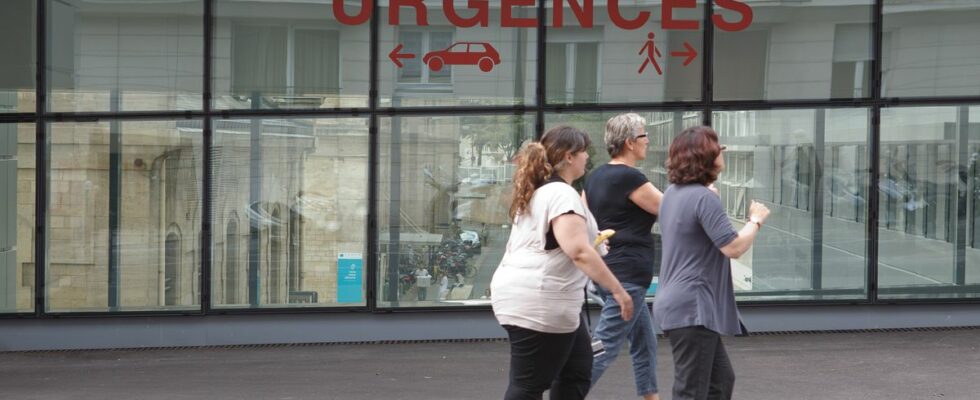One out of two chronic patients testifies to difficulties in accessing care over the past twelve months, according to a survey published on Tuesday by a new collective of patient associations, which is alarmed by the situation of the public hospital.
This flash survey was conducted in October with 1,705 patients (or caregivers) and 309 caregivers by Action Patients, a collective created in September and bringing together associations of chronic patients.
Difficulties of access, postponements of care and abnormally long delays
Within this new movement are around thirty associations, some of which are also members of the network of users France Assos Healthas French Association of Hemophiliacs (AFH), Transhepate and Overcome cystic fibrosis. Cancer, leukemia, transplant patients, kidney failure, dialysis patients or suffering from amyotrophic lateral sclerosis (ALS) are also represented.
Mainly cared for in the public hospital (more than 80%), the patients who participated in the study have, for half (49%), encountered difficulties in accessing care over the last twelve months.
Among the frequently cited problems are difficulties in accessing diagnostic examinations (19%) and follow-up consultations (14%), postponements of care (15%) and abnormally long delays for a first consultation (14%).
Impact on physical and psychological health
Of more than 300 patients who suffered a change in access to care, a large majority believe that it has had an impact on their physical (over 62%) and psychological (81%) health or that of their loved ones. In the end, 44% of the patients questioned consider themselves to be quite, even very worried about the management of their disease.
Caregivers are even more alarmed: more than 85% believe that patient care has deteriorated over the past year and more than 75% believe that this deterioration has caused a loss of opportunity. Eight out of ten caregivers believe that this deterioration is due to a “lack of nurses or other caregivers”, six out of ten also attributing it to an insufficient number of doctors.
“While more than 80% of caregivers consider that without reform of the health system, the quality and care of patients will deteriorate to the point of endangering” their health, “the public authorities continue to adopt measures to urgency to try to “hold on” from one crisis to another”, deplores Action Patients in a press release.

